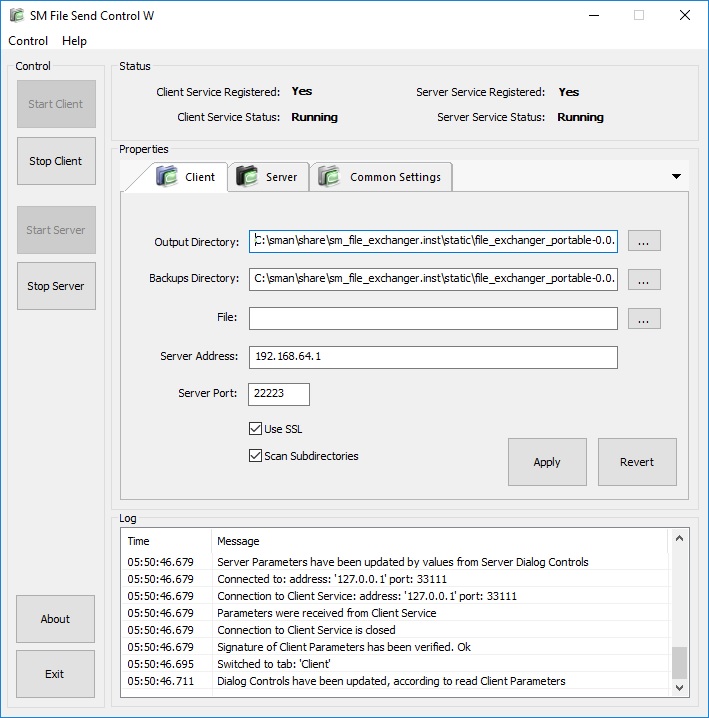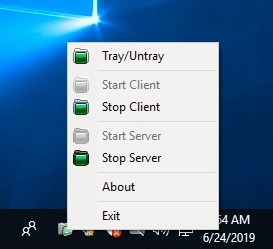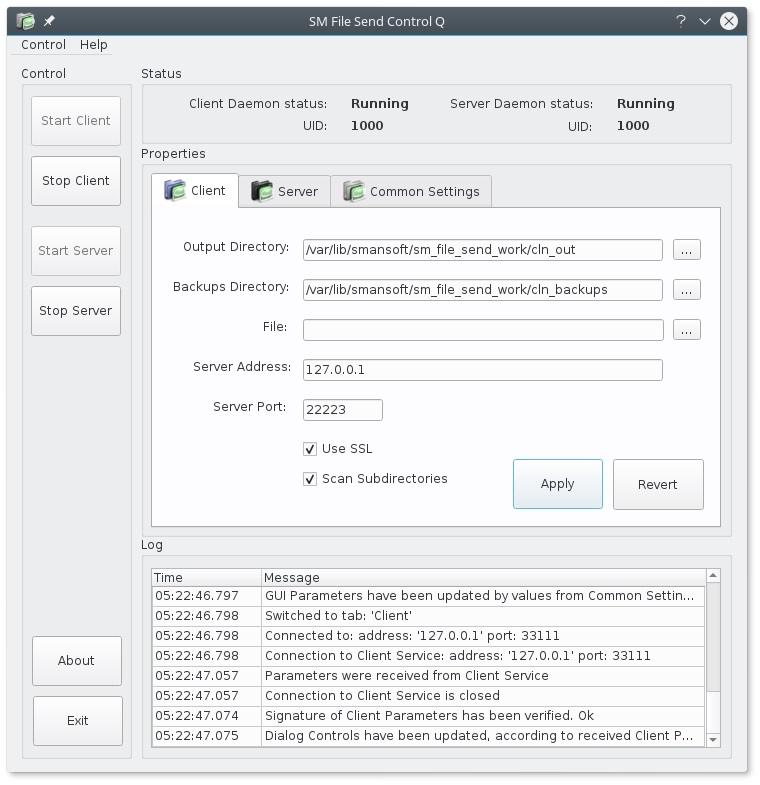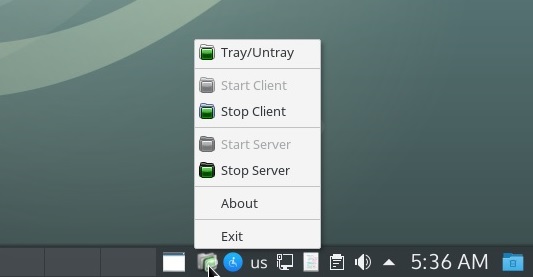File Exchanger Tool 0.0.11.11 has been released.
Supported platforms:
- Windows (x86, x86_64)
- Linux (x86_64)
File Exchanger – 0.0.11.11 – Linux
File Exchanger Tool – 0.0.11.11 – Windows
Please, see screenshots here: screenshots.
Here are: demo (screenshots (.jpg), video demo (install, run) (.mp4)).
File Exchanger (file_exchanger) Tool is a peer-to-peer files exchanger for Windows/Linux platform.
Overview
—————-
The main features of File Exchanger (file_exchanger) Tool:
- transfer of files from client to server, using open socket connections;
- transfer of files from client to server, using SSL connections;
- control of entirety of received files, comparing of checksum values sent and received files, using CRC-32 algorithm;
- using transfer of files from client to server, using SSL connections;
- using follow SSL mode/algorithms (TLSv1.2), if SSL connection is used:
- ECDHE-ECDSA-AES256-GCM-SHA384
- TLSv1.2 – version
- TLS – the protocol used
- ECDHE – the key exchange mechanism
- ECDSA – the algorithm of the authentication key
- AES – the symmetric encryption algorithm
- 256 – the key size of AES
- GCM – the mode of AES
- SHA384 – the MAC used by the algorithm
- prime256v1 (NIST P-256, secp256r1) – Elliptic Curve, that is used by ECDHE and ECDSA
- using unique CA of client and server certificates;
- user can update CA, client/server/gui keys/certificates, using suite of scripts ssl.ecdsa.tar.gz (ReadMe.txt in ssl.ecdsa.tar.gz);
- using of xml configuration files, which can be updated by user and will be applied without restart of processes (sm_file_send_clns, sm_file_send_srvs);
- scanning of configured directories, where sent files can be copied;
- copying of sub-directories with files, saving of sub-directories tree at the server side;
- support of unicode symbols in file/directory names;
- backup (with rolling) of sent/received files;
- server and client modules can be launched as Services (Windows)/Daemons (Linux);
- console command line control application (only Windows) of client/server Services (requires Administrator permissions);
- Windows gui application (asynchronous multi-thread GUI), that allows to monitor states of client/server Services, control of client/server Services and change parameters of client/server Services;
- Linux gui application (Qt-based) (asynchronous multi-thread GUI), that allows to monitor states of client/server Daemons, control of client/server Daemons (when it’s possible, according to users permissions) and change parameters of client/server Deamons;
- using ECDSA (NIST P-256, secp256r1) for signing/verification parameters, which are sent between client/server and gui applications (Windows/Linux);
- tool applications don’t use any intermediate servers and transfer files directly between client and server;




Please, see more screenshots here: screenshots.
Read ReadMe.txt for more info.
File Exchanger (file_exchanger) Tool is a free software distributed under the MIT.
Read License.txt for more information about license.
Please, send your notes and questions to info@smansoft.com.
File Exchanger (file_exchanger) Tool ® Copyright © 2018-2019 by SManSoft.
